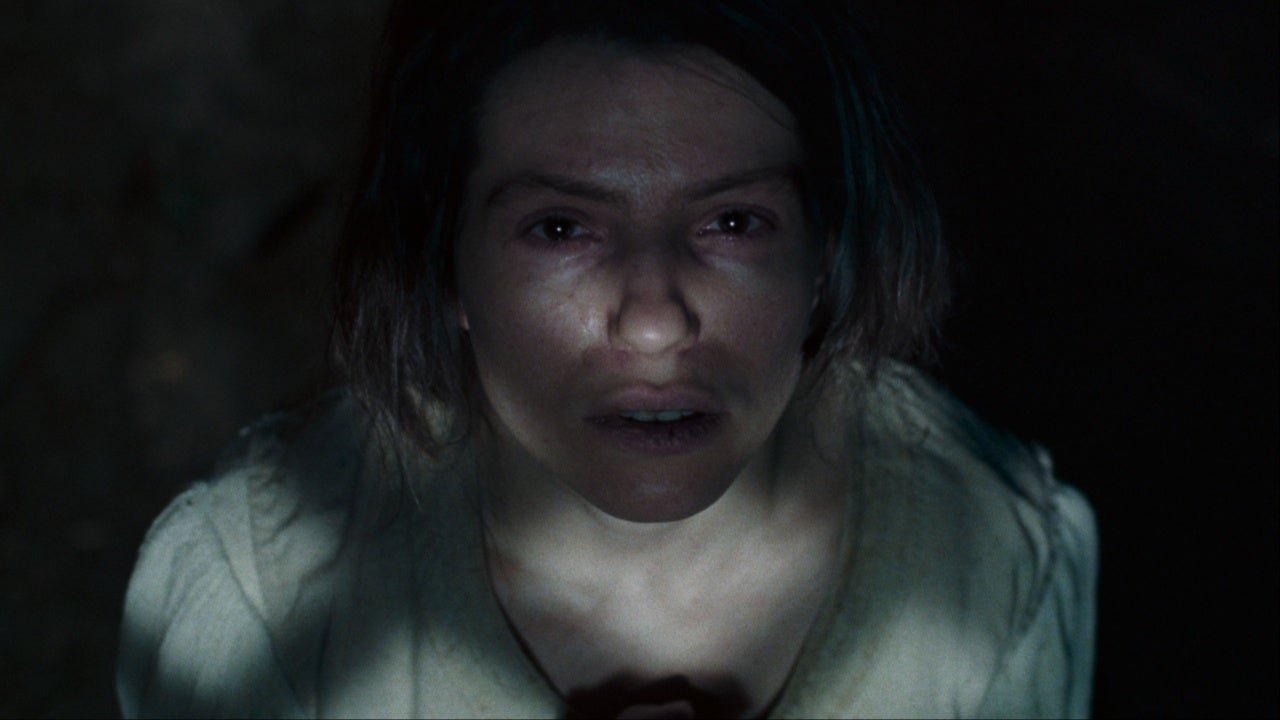The Devil’s Bath streams on Shudder starting Friday, June 28.
The newest movie from Severin Fiala and Veronika Franz is their darkest but, and that’s saying one thing. The Austrian filmmaking duo focuses on bleak and disturbing materials, pairing transgressive matters with unflinching violence for the kind of motion pictures that stun viewers into silence. Fiala and Franz’s earlier horror options, Goodnight Mommy and The Lodge, broke taboos round moms, kids, and the presumption of security between them. So does their newest, The Devil’s Bath. But that’s just the start.
The movie offers with an obscure historic phenomenon often known as “suicide by proxy,” through which suicidal folks – primarily ladies – in early fashionable Europe took benefit of a perceived loophole in Catholic morality. The Church taught that life was ache, and the one hope the downtrodden had for happiness was within the afterlife. But suicide was an unforgivable sin – the one unforgivable sin, as an individual couldn’t confess and be absolved of it after demise. What was somebody who feared Hell, however may not tolerate the ache of earthly existence, to do?
To elaborate additional could be to provide away all the plot of The Devil’s Bath – suffice to say, it goes to some very darkish locations, hinging on a logic that’s unthinkable to Twenty first-century minds. On one degree, this makes it a condemnation of Catholicism and its absolute management over the minds of the trustworthy. But a easy anti-religion screed, this isn’t. Fiala and Franz acknowledge that we’re nonetheless residing underneath methods of coercion and management, and that the expectations society locations on ladies particularly are nonetheless so not possible that making an attempt to dwell as much as them is sufficient to drive somebody over the sting.
Scenes shot in actual historic places improve the credibility of what’s clearly a deeply researched movie. Similar to Robert Eggers’ The Witch, The Devil’s Bath attracts from actual courtroom transcripts to provide its interval horror lifelike texture. Our protagonist, Agnes (Anja Plaschg, a.okay.a. experimental musician Soap&Skin), relies on an actual individual, and the movie has nice sympathy for her: Agnes just lately married Wolf (David Scheid), a younger fisherman from her tiny village in rural Austria. And though he isn’t merciless to her, he’s not excited about intercourse, which is an issue for a pious girl who believes that motherhood is her divine function in life. The disapproval of her mother-in-law (Maria Hofstätter) doesn’t assist, and shortly the melancholy Agnes finds herself sinking deeper into “the satan’s tub” – an antiquated time period for what we now name melancholy.
Agnes’ story is relentlessly grim. The Devil’s Bath has no comedian reduction in any respect, and Soap&Skin’s abrasive musical rating does little to lighten the temper. The similar is true for Martin Gschlacht’s cinematography, which was lovely sufficient to win an award on the Berlin International Film Festival, however incorporates nary a shade brighter than the overcast greens of the deep forest. Agnes’ arc can also be unsurprising, on condition that we see one other girl attain the identical determined conclusions in a surprising chilly open. But the inevitability can also be the purpose – and the horror.
18th-century European tradition celebrated, even fetishized, demise and sacrifice: Early within the movie, we see an executioner’s assistant stealing the finger of a condemned girl, then giving it to Agnes as a fertility attraction. This was an actual perception, as was the thought, disturbingly dramatized right here, that consuming the blood of a assassin may remedy all method of bodily and psychological illnesses. For those that wish to nostril round within the darker corners of historical past, these little particulars are completely fascinating. For the weaker-stomached, the prevalent gore and decay could tip The Devil’s Bath into unwatchable territory.
That being stated, this isn’t going to be a enjoyable viewing expertise for anybody. The closest Fiala and Franz have to supply is the catharsis of a powerhouse monologue in the direction of the tip of the movie. Plaschg stares down the digital camera as she confesses her sins to a priest, confronting the viewers with each the knowledge of her religion and the depth of her despair. She’s not a statistic, however an actual one who’s actually struggling. That’s what makes this movie so disturbing: Given some room for creative license, these unfathomable occasions actually occurred. No made-up monsters can compete with that.




